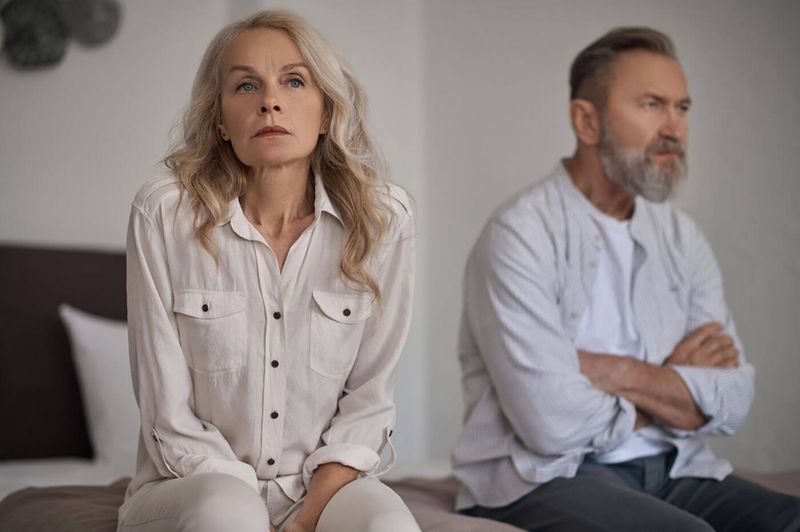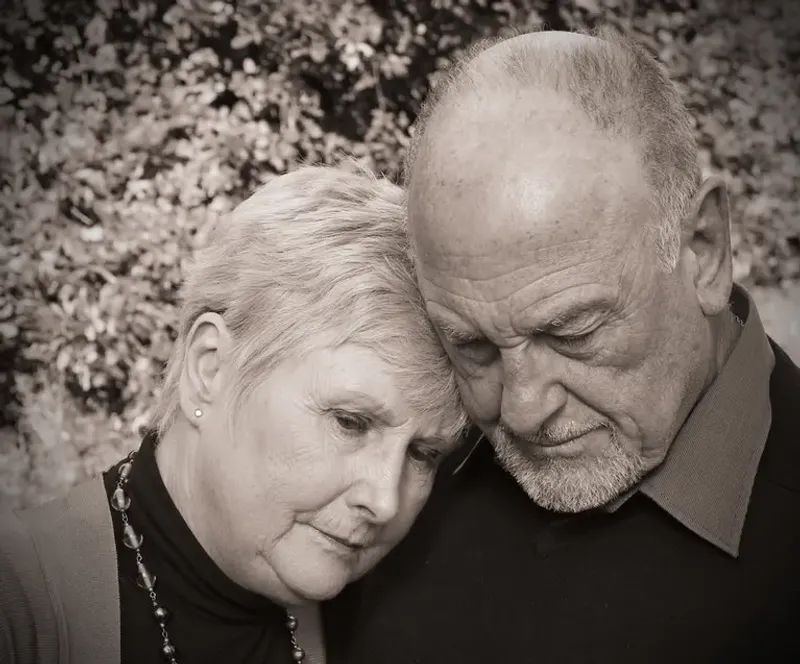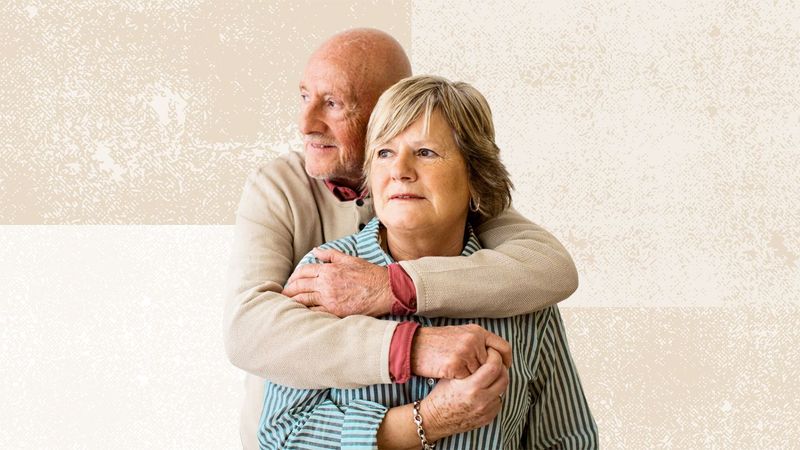That moment, late at night, when a friend admits out loud what you both already knew deep down—that’s what this is. We’re talking about the kind of splits that don’t happen in the heat of the moment, but after years—sometimes decades—of shared life.
Divorce later in life isn’t just about falling out of love. It’s about waking up, sometimes quietly, to the fact that you’ve changed, or maybe that you finally can admit you want something else.
This isn’t about blame. It’s about the strange, hopeful, terrifying honesty that comes with wanting more from the years you’ve got left. So, if you’ve ever wondered why couples who survived the hard stuff—raising kids, paying off mortgages, weathering loss—end up splitting, here’s a real conversation, not a sales pitch. Twenty reasons, no holding back.
1. Empty Nest Syndrome
The house gets quieter than you ever imagined. Suddenly, the kids are out, the calendar’s open, and the walls echo back everything you haven’t said to each other in years.
It’s not that you dislike each other—you’re just not sure who you are together anymore. For some couples, the kids were the glue, the distraction, the shared project. When that project ends, the silence can feel deafening.
Facing each other across the dinner table with nothing but your own history between you can be a shock. It’s not a single fight or a dramatic betrayal. Sometimes it’s just the slow, unfamiliar question: what now, and do I still want to answer that with you?
2. Financial Disagreements
Money is never just about money. It’s about power, priorities, and whose dreams get funded.
Whether it’s overspending, secret debts, or clashing ideas about retirement, financial fights cut deep. You start to feel like you’re working against each other, not together.
After years of compromise, one more argument about money can be the last straw. For some, it’s easier to split the assets than keep fighting about what they mean.
3. Indipendenza finanziaria
Speaking of money, it changes the game. For years, staying might have been the only practical option—especially for women raised to depend on someone else’s paycheck.
Now, with more women working, inheriting, or just becoming savvy with money, the fear of being broke doesn’t have to hold anyone back. It’s not about greed. It’s about the freedom that comes when you finally realize you can take care of yourself.
A surprising benefit of aging: financial stability. Gaining control over your own wallet opens the door to getting control over your own happiness, too. The calculus shifts from “Can I afford to leave?” to “Can I afford to stay and lose more time?”
4. Health Challenges
No one likes to admit how hard illness hits a marriage. Caring for someone whose health is slipping can start as an act of love, but the grind wears you down.
Your world shrinks to doctors’ appointments, pill organizers, and endless waiting rooms. Resentment sneaks in where you expected only devotion. There’s guilt in wishing you had more freedom, and shame in admitting that it feels like too much.
Sometimes the emotional exhaustion just becomes too much to bear, and the distance grows bigger than the illness itself. It’s not about lacking compassion—it’s about survival, and the honesty that comes when you’re finally too tired to pretend.
5. Crescere a parte
Remember when you were both obsessed with the same band, or you finished each other’s sentences? Years go by, and suddenly you’re not laughing at the same jokes.
Interests change. At times it happens so slowly you don’t catch it until one day you realize you’re living parallel lives. You might still care, but you don’t connect in the ways that once mattered.
It’s not dramatic, just quietly sad. The person you married isn’t the person beside you anymore, and you’re not sure when that happened. Sometimes, that’s the loneliest place of all.
6. Changing Social Norms
Let’s be honest: divorce used to mean failure or scandal. Now, it means you get a chance to rewrite your story.
Society doesn’t look at divorced people the way it used to. The pressure to stick it out at all costs is fading. Friends are more likely to ask how you’re feeling than why you couldn’t make it work.
With the shame lessened, people are making choices based on what they want, not what keeps up appearances. It’s not selfishness—it’s survival. And maybe, finally, a little hope for something new.
7. Retirement Transitions
You think retirement will be endless weekends and travel, but sometimes it’s just too much togetherness. Suddenly, you’re home all day with a person you barely saw for decades.
When routines disappear, old problems creep in. All the things you put off dealing with—now they’re front and center. There’s nowhere to hide from each other anymore.
Some couples find new hobbies and bond. Others realize they’ve been roommates, not partners. Retirement doesn’t just change your calendar—it can change your marriage in ways you never expected.
8. Unresolved Past Issues
You’d think after all these years, you’d be done fighting about the same old things. But pain doesn’t just vanish because you ignore it. Old wounds fester beneath the surface.
Maybe it was that one unforgivable mistake, or the way you never felt heard. You both learned to bury it, but the resentment never left. Time heals some things, but not everything.
Eventually, the weight of everything unsaid gets too heavy to carry. Occasionally, it’s the old stuff—not the new—that finally splits you apart. It’s not about the fight, it’s about the hurt you never let heal.
9. Desire for Personal Growth
There comes a point when you start asking: is this all there is? For some, the urge to grow, learn, or reinvent themselves becomes impossible to ignore.
You might want to travel, take up a new hobby, or go back to school. The person next to you doesn’t share that hunger. Suddenly, your dreams feel too big for the marriage you’re in.
It’s not about rejecting your partner; it’s about choosing yourself for the first time in a long time. Seeking growth isn’t selfish—it’s essential. A little selfishness is the only way to finally feel alive.
10. Infidelity
Cheating isn’t just a young person’s drama. At times, it’s looking for connection, validation, or just a thrill that’s been missing for years.
Finding out about an affair late in life hits differently. It’s not just about broken vows—it’s about wasted time. The betrayal colors everything, even memories you once thought were safe.
Rebuilding trust after decades is almost impossible. Some couples can’t face the mountain of hurt, and decide it’s finally time to put themselves first—even if it’s scary to start over.
11. Mancanza di intimità
Intimacy isn’t just about sex, but let’s be real—that matters, too. Over time, the spark can fade until you’re roommates instead of lovers.
It’s the little things: stopped holding hands, stopped sharing secrets, stopped saying “I love you” and really meaning it. The distance creeps in slowly, but suddenly it feels like a canyon.
Not everyone needs fireworks forever, but when emotional or physical closeness is gone, the loneliness can be sharper than any argument. Some people decide they’d rather risk being alone than feeling invisible with someone else.
12. Midlife Crisis
You know the stereotype: sports car, new hobbies, sudden obsession with youth. But a midlife crisis is more than a cliché.
It’s a reckoning. One partner starts chasing lost time, and the other feels left behind. Sometimes it’s about regret; sometimes it’s about panic.
The marriage gets caught in the crossfire between who you were and who you wish you’d been. When it feels like your spouse is living someone else’s dream, the distance can be too much to bridge.
13. Substance Abuse
Addiction doesn’t care about age. It sneaks in through stress, loneliness, or plain old habit.
Watching someone you love disappear into a bottle or a pill is brutal. The person you married starts to fade, replaced by someone you can’t reach. You try to help, try to fix, but nothing changes.
Eventually, love isn’t enough to keep you both afloat. Leaving is the only way to save yourself. The shame and stigma make it even harder to talk about, but it’s real.
14. Mental Health Struggles
Depression, anxiety, or just the weight of the world—mental health shapes every relationship. Maybe, the struggle is lifelong. Maybe, it hits out of nowhere.
You do your best to support each other, but the distance grows when words don’t work. The silence can be even more isolating than the struggle.
One partner may feel like they’re living with a stranger. The pain isn’t always visible, but it colors everything. For some, the only way to care for themselves is to walk away.
15. Unrealistic Expectations
We all carry myths about what marriage should be. Happily ever after—the fairytale never included real life.
Some couples keep waiting for their partner to change, or for some magic fix. The disappointment builds until you can’t pretend anymore. You start to wonder if anyone could live up to those old dreams.
Looking across the table at someone who never became who you hoped hurts more than being alone. On occasion, letting go of the fantasy is the only way to find peace.
16. Mancanza di comunicazione
You’d be surprised how much can go unsaid in decades together. Little things pile up, never discussed, until they turn into big things.
Some couples stop talking because they’re tired of fighting; others because they stopped believing it mattered. The silence becomes a language of its own.
It’s not dramatic, just empty. When you stop sharing hopes, fears, even daily details, the intimacy fades. Once in a while, it’s easier to start fresh than find a way to speak again.
17. Desire for Independence
Craving independence isn’t just for twenty-somethings. After decades of compromise, you just want to be your own person again.
It might start small—taking solo trips, picking up new interests. Then, you realize how much you like making choices just for yourself. The thought of spending your remaining years answering to someone else feels suffocating.
For some, walking away isn’t about anger. It’s about breathing easier, owning your time, and seeing who you can become without someone else’s shadow.
18. Caring for Aging Parents
This is noble, but it can drain every last drop of patience and energy. The focus shifts from your marriage to your responsibility.
Old hurts resurface as stress mounts. Resentment grows when one partner feels forgotten, or when the burden is uneven. The house gets crowded—not just with people, but with emotion.
Caregiving exposes cracks that were always there. The strain can snap even the strongest bonds. Love can survive many things, but maybe not this.
19. Social Media Influence
You’d think social media wouldn’t matter at this age, but it does. Pictures of perfect vacations and smiling couples make real life feel pale by comparison.
Scrolling late at night, it’s easy to feel like everyone else figured it out. The pressure to measure up creeps in, even when you know better.
Comparison is a thief. Seeing other people’s highlight reels just brings your own dissatisfaction into sharper focus.
20. Peer Influence
It’s amazing how much we’re shaped by the people around us. When friends start divorcing, the taboo fades away.
You hear stories of new beginnings, freedom, second chances. It’s tempting to wonder if you could have that, too. In certain moments, you need to see someone else go first to believe you could survive it.
Peer influence isn’t about copying—it’s about possibility. When the rules change in your circle, so do your options.





















